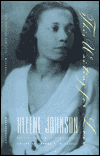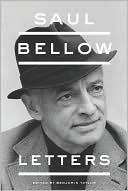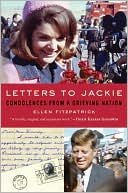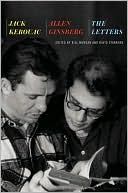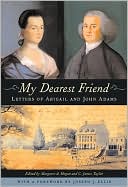This Waiting For Love
This volume brings together all of the known poetry and a selection of correspondence by an enormously talented but underappreciated poet of the Harlem Renaissance. Cousin of novelist Dorothy West and friend of Zora Neale Hurston, Helene Johnson (1905-1995) first gained literary prominence when James Weldon Johnson and Robert Frost selected three of her poems for prizes in a 1926 competition. During the late 1920s and early 1930s her poetry appeared in various small magazines, such as the...
Search in google:
This volume brings together all of the known poetry and a selection of correspondence by an enormously talented but underappreciated poet of the Harlem Renaissance. Cousin of novelist Dorothy West and friend of Zora Neale Hurston, Helene Johnson (1905-1995) first gained literary prominence when James Weldon Johnson and Robert Frost selected three of her poems for prizes in a 1926 competition. During the late 1920s and early 1930s her poetry appeared in various small magazines, such as the Saturday Evening Quill, Palms, Opportunity, and Harlem. In 1933 Johnson married, and two years later her last published poem, "Let Me Sing My Song," appeared in Challenge, the journal West had founded to revive the spirit of the Harlem Renaissance. In his well-researched introduction, Verner D. Mitchell reconstructs Johnson's life, the details of which have long been veiled from public view, and places her in the context of a vital literary tradition. In addition to discussing her relationship with West, Hurston, and other black women writers, he explores the distinctive, at times radical, qualities of her work. Ever willing to defy the genteel conventions that governed women's writing, Johnson wrote poems on erotic themes and engaged the aesthetic, gender, and racial politics of her time. Cheryl A. Wall's foreword also celebrates Johnson's talent, particularly the ease with which she moved among various verse forms-from the rigor of the sonnet to the improvisational creativity of free black vernacular. "An unexpected and most welcome gift," This Waiting for Love, Wall writes, is "an enduring tribute" to "the vibrant poetry of Helene Johnson."Publishers WeeklyAt age of 18, Johnson (1906-1995) won Opportunity magazine's first prize for poetry for 1925--her cousin Dorothy West, one year younger, shared the prize for fiction with Zora Neale Hurston. The two moved to New York the following year, and helped spur the Harlem Renaissance. West remains well known, while Johnson, as Memphis University English professor Mitchell recounts, produced only a handful of poems, and had married and dropped out of the literary scene by the mid '30s. Nevertheless, the fact that this is the first single-author collection of her work is surprising, particularly given that Johnson continued to write, if sporadically, and that the poems are often quite good. In a preface, Rutgers professor Cheryl A. Wall (Women of Letters of the Harlem Renaissance) finds "the ease with which Johnson moves from the rigor of the sonnet to the free idiom of [a line like] `your shoulders jerking the jig-wa' is impressive"--and she's right. Poems like the defiantly lyrical "Magula," the foreboding "A Southern Road" and the social realist "Regalia" ("Stokin' stoves/ Emptin' garbage/ ...Answerin' a million calls/ ...it sure wasn't no picnic/ Bein' a janitor") retain their immediacy. The era's overblown norms can intrude at times ("her pale palmed hands grasped the thin air in quest/ Until, like two antalgic words, they fell"), and the letters, photos and a biographical essay from daughter Abigail McGrath are more like padding than essential material. But readers who turn to the poems themselves will feel like they've discovered a vital American voice. (Dec.) Forecast: This collection will find its way onto some syllabi, and the poems will enjoy a much higher degree of anthologization as a result. But although constructed for the general reader, the book lacks the kind of major material needed to break into the trade market, though Black History Month could give it a boost via retail displays. Copyright 2000 Cahners Business Information.
\ Publishers Weekly - Publisher's Weekly\ At age of 18, Johnson (1906-1995) won Opportunity magazine's first prize for poetry for 1925--her cousin Dorothy West, one year younger, shared the prize for fiction with Zora Neale Hurston. The two moved to New York the following year, and helped spur the Harlem Renaissance. West remains well known, while Johnson, as Memphis University English professor Mitchell recounts, produced only a handful of poems, and had married and dropped out of the literary scene by the mid '30s. Nevertheless, the fact that this is the first single-author collection of her work is surprising, particularly given that Johnson continued to write, if sporadically, and that the poems are often quite good. In a preface, Rutgers professor Cheryl A. Wall (Women of Letters of the Harlem Renaissance) finds "the ease with which Johnson moves from the rigor of the sonnet to the free idiom of [a line like] `your shoulders jerking the jig-wa' is impressive"--and she's right. Poems like the defiantly lyrical "Magula," the foreboding "A Southern Road" and the social realist "Regalia" ("Stokin' stoves/ Emptin' garbage/ ...Answerin' a million calls/ ...it sure wasn't no picnic/ Bein' a janitor") retain their immediacy. The era's overblown norms can intrude at times ("her pale palmed hands grasped the thin air in quest/ Until, like two antalgic words, they fell"), and the letters, photos and a biographical essay from daughter Abigail McGrath are more like padding than essential material. But readers who turn to the poems themselves will feel like they've discovered a vital American voice. (Dec.) Forecast: This collection will find its way onto some syllabi, and the poems will enjoy a much higher degree of anthologization as a result. But although constructed for the general reader, the book lacks the kind of major material needed to break into the trade market, though Black History Month could give it a boost via retail displays. Copyright 2000 Cahners Business Information.\ \ \ \ \ Library JournalJohnson is best remembered for a handful of often anthologized poems from the Harlem Renaissance, including "Bottled," "A Southern Road," and "Magula." After her glory days of the Twenties and Thirties, Johnson stopped publishing and gradually faded from the writing scene. However, as this collection by Mitchell (English, Univ. of Memphis) amply demonstrates, she did not stop writing, continuing to compose such deft poems as the political "Rootbound" and the amorous "He's About 22, I'm 63." This anthology includes all of Johnson's 34 published poems, plus many other works of the Fifties, Sixties, and Seventies, as well as correspondence between Johnson and her cousin Dorothy West, Zora Neale Hurston, and Wallace Thurman, among others. These poems and letters, in addition to Mitchell's brief but insightful introduction, help broaden our understanding of a talented, long-undervalued writer. This important volume is recommended for all collections of African American literature and/or American poetry.--Louis J. Parascandola, Long Island Univ., Brooklyn Campus Copyright 2001 Cahners Business Information.\ \
